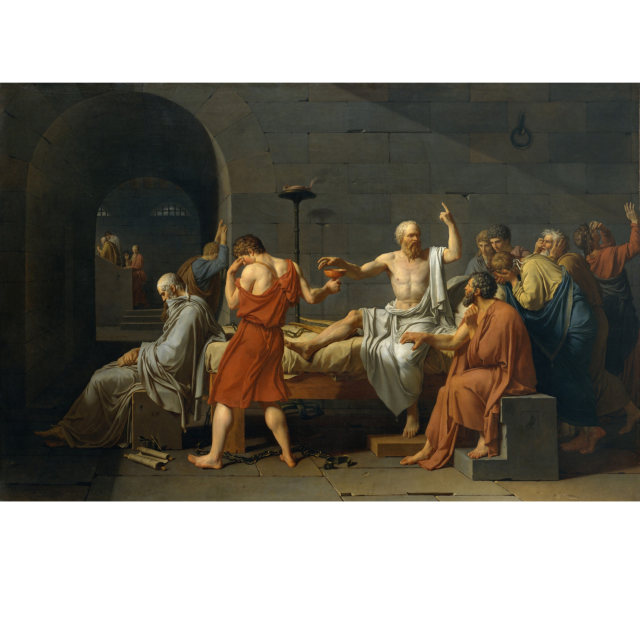Socrates, a Greek philosopher, was sentenced to death by drinking poison hemlock in 399 B.C.E.:
-
-
TrialSocrates was convicted of corrupting the youth of Athens and introducing strange gods. The Athenian dikasts, a random jury of peers, voted to convict him.
-
DeathSocrates was given the poison in wine by a physician-poisoner. He was instructed to walk until he felt difficulty, which would speed the poison to his heart. Socrates drank the hemlock without hesitation, and numbness slowly crept into his body. He described his death as a release of the soul from the body.
-
-
ReactionSocrates faced his death calmly, using it as a final lesson for his pupils. He declined offers from friends to bribe the guards and rescue him, stating that he wasn’t afraid of death and was still a loyal citizen of Athens.
Plato’s Phaedo dialogue and Xenophon of Athens’ Apology of Socrates to the Jury are primary-source accounts of Socrates’ trial and execution.







